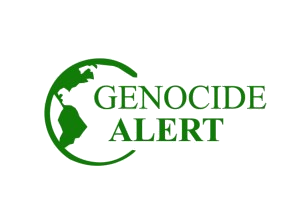Offener Brief an den UN Sicherheitsrat: Offene Debatte über Klein- und Leichtwaffen
Civil Society Calls for Member States to Protect Populations from Atrocity Crimes by Preventing the Means to Commit Them.
Excellency,
On behalf of the undersigned civil society organizations, we are writing to you to request your government’s active participation at the open debate of the UN Security Council on “Small Arms: The Human Cost of Illicit Transfer, Destabilizing Accumulation and Misuse of Small Arms and Light Weapons” on 13 May 2015. The debate will focus on the threats Small Arms and Light Weapons (SALW) pose to civilian protection during armed conflicts and post-conflict situations. The undersigned appeal for your government to voice its strong support for addressing the horrific civilian impact of SALW, the most commonly used weapons in armed conflicts and post-conflict situations, and for addressing their Responsibility to Protect in this regard.
Additionally, the undersigned encourage governments to consider the inclusion of the following points during their interventions at the open debate:
The presence of SALW can enhance a State’s risk for genocide, war crimes, ethnic cleansing, and crimes against humanity: The UN’s Framework of Analysis for Atrocity Crimes highlights several indicators related to arms circulation or proliferation, the presence of which can increase the likelihood of atrocity crimes. Indeed, the Security Council itself recognized the link between the presence of SALW and atrocities in Resolution 2117 (2013), stating “that the misuse of small arms and light weapons has resulted in grave crimes and reaffirming therefore the relevant provisions of the 2005 World Summit Outcome Document regarding the protection of civilians in armed conflict, including paragraphs 138 and 139 thereof regarding the responsibility to protect populations from genocide, war crimes, ethnic cleansing and crimes against humanity.”
Strengthening the Security Council’s disarmament and arms control efforts will assist in fulfilling the Responsibility to Protect (RtoP, R2P) and in maintaining international peace and security: Because weapons are the means with which atrocities are perpetrated, threatened, facilitated, or prepared—and as atrocity crimes are inherently threats to international peace and security—enhancing the Security Council’s role in disarmament and arms control initiatives can assist States in implementing RtoP and improve the protection of populations. Such efforts could include increasing identification of SALW-related challenges in the mandates of UN peace operations, taking steps to improve implementation and effectiveness of arms embargoes, and exploring ways to contribute to the implementation of the Arms Trade Treaty (ATT).
In addition to the ATT, the Security Council should be urged to encourage States to work towards universal ratification of other disarmament and arms control treaties such as the Biological Weapons Convention, the Chemical Weapons Convention, the Nuclear Non-Proliferation Treaty, the Convention on Cluster Munitions, and the Mine Ban Treaty, which can in turn help strengthen implementation of instruments such as the Genocide Convention, the Rome Statute of the International Criminal Court, and the Geneva Conventions.
Illicit transfers, misuse, and accumulation of SALW can have a disproportionate effect on women and girls: Conflicts, and the SALW with which they are frequently waged, often exacerbate sexual and gender-based violence, which as the Security Council recognized could constitute a war crime, a crime against humanity, or a constitutive act with respect to genocide. Furthermore, strengthening the role of women in all initiatives to reduce the illicit transfer and misuse of SALW will be vital for their effective implementation.
Victim assistance is integral to addressing the human cost of illicit SALW in armed conflicts and post-conflict situations. Survivors must receive assistance for their comprehensive rehabilitation, and their human rights and full inclusion must be ensured.
Disarmament, Demobilization, and Reintegration (DDR) Programmes and Security Sector Reform (SSR) Programmes play an important role in SALW control and upholding RtoP: As the security sector controls a significant portion of the weapons (i.e. the means with which atrocities are perpetrated) circulating within a country, and as efficacious DDR programs can lessen the amount of such weapons and help in their tracing, international assistance through such mechanisms can assist States in fulfilling their RtoP. In order to better protect populations, further consideration of how DDR and SSR can be linked to conflict prevention and integrated with other peacebuilding processes will be necessary.
The undersigned civil society organizations thank you for your consideration and hope that your government will continue to engage with the Security Council as this body continues to explore its role in enhancing disarmament and arms control efforts.
Sincerely,
- Action on Armed Violence (United Kingdom)
- Action Pour le Développement et la Paix Endogènes (Democratic Republic of Congo)
- Adopt-a-Camp (Nigeria)
- Alternative ASEAN Network on Burma (Thailand)
- Article 36 (United Kingdom)
- Asia Pacific Centre for the Responsibility to Protect (Australia)
- Asia Pacific Solidarity Coalition
- The Canadian Centre for the Responsibility to Protect (Canada)
- The Center for Euro-Atlantic Studies (Serbia)
- Coalition Malienne CPI /CMCPI (Mali)
- Control Arms
- Droits Humains Sans Frontières (DRC)
- East African Law Society (Tanzania)
- Genocide Alert (Germany)
- Genocide Watch (USA)
- Global Centre for the Responsibility to Protect (USA)
- Global Justice Center (USA)
- Initiatives for International Dialogue (The Philippines)
- International Action Network on Small Arms
- The International Coalition for the Responsibility to Protect
- International Justice Project (USA)
- International Refugee Rights Initiative (Uganda)
- Inter-Religious Council for Peace Tanzania (Tanzania)
- Montreal Institute for Genocide and Human Rights Studies (Canada)
- MUSONET-Mali (Mali)
- Network for Empowerment and Development Initiative (Nigeria)
- Oxfam International
- PAX (The Netherlands)
- Permanent Peace Movement (Lebanon)
- The Scientific Association of Young Political Scientists (Greece)
- The Sentinel Project for Genocide Prevention (Canada)
- United Nations Association – Democratic Republic of Congo (DRC)
- United Nations Association – Sweden (Sweden)
- United Nations Association – United Kingdom (United Kingdom)
- Vision-Gram International (Canada, Democratic Republic of Congo)
- Volunteers on Community Care Initiative (Nigeria)
- West Africa Civil Society Institute (Ghana)
- World Federalist Movement – Institute for Global Policy (USA, The Netherlands)
- Youth Action for Development (Burundi)
- Zarga Organization for Rural Development (Sudan)
Hier kann der Offene Brief auf Englisch eingesehen und als PDF gespeichert werden

